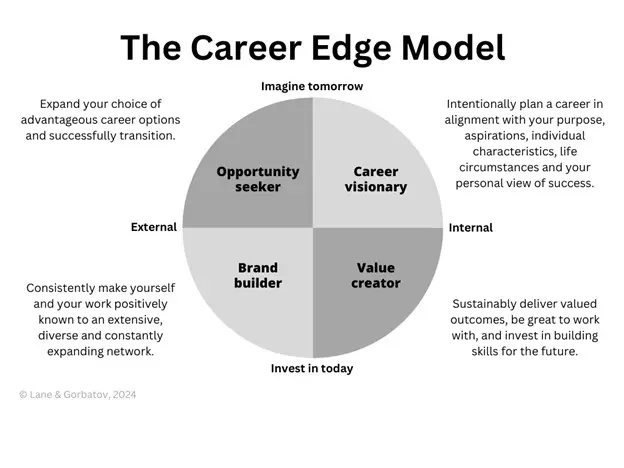Career frustration has become palpable and widespread across organizations, industries, geographies, and demographics. People are dissatisfied with their careers, and Gallup reports that only 20-30% of employees feel engaged at work. Studies on burnout and job hopping, along with surveys like Deloitte’s Millennial Survey, reveal that many workers are searching for meaningful roles but struggle to find them. Beyond dissatisfaction, many are confused by an abundance of career advice that is often contradictory. At one moment, experts will urge professionals to be their authentic selves and then advise them to create specific work identities to manage office politics.
The career deal – the unspoken understanding between employers and employees – is in flux, driven by three meta trends. Firstly, beginning a few decades ago, organizations started promoting the idea of employees “owning their careers.” This shift to career-self management was popularized by works such as Douglas T. Hall’s The Career Is Dead and was, in reality, code for a reduction in job security and traditional career progression. Alas, professionals were not actually taught how to “own a career.” Small wonder many employees became frustrated and skeptical – and this is only going to become more so in the AI world.
Second, the nature of work itself keeps evolving all the time. Outsourcing, zero-hour contracts, the gig economy, side hustles, self-employment, shared workforce… all these changes are simultaneously enticing and threatening for workers. They dangle opportunities for flexibility and autonomy while remaining unstable and uncertain.
Finally, this new work reality requires a new mindset. Having a career on your terms means making strategic career choices, learning new skills quickly, and being open to opportunities and change. This hinges on one’s ability to adapt and initiate the personal career journey.
Navigating this work environment can be daunting, especially without realistic guidance on how to be successful – despite the range of self-help literature (much of which is anecdotal, and offers advice that is incomplete or simply perpetuates untrue lore about career advancement.) Many employees now understand the reality that career outcomes aren’t inherently fair, and good things – at least in the modern workplace – don’t always come to those who work hard and wait.
It doesn’t have to be this way.
Long-term success and deep satisfaction is still a real option in a career. In fact, the current turbulence represents opportunities for those who know how to navigate their career. There are so many things the “boss won’t tell you,” which means that if you must “own your career” you might as well do it in a way that gives you a professional edge.
How? Well, the fundamentals of career success remain constant. What has always mattered still matters, perhaps now more than ever. It’s important to be able to adapt these principles to the work environment as it continues to evolve.
Another trend is emerging that is likely to bring about a sea change in how organizations educate employees in regard to career skills. The topic of career management and career development will continue to rise on the organizational agendas. In an article published on the World Economic Forum website in early 2022, LinkedIn CEO Ryan Roslansky called out “improving retention by focusing on career development” as a standalone strategy in addressing both the impending shortage of skills in fields created by new technologies and the challenge of reskilling and reorienting millions of workers whose jobs will soon disappear – largely due to the same reason. Organizations will have no choice but to embrace career management support as a strategy for the attraction, development, and retention of their talent.
“Move Up or Move On: 10 Secrets to Career Success” aims to democratize career management and includes a model with four cornerstones of career success, which encompass all the different actions that can be taken to enhance one’s career. Those actions can influence either today’s situation (invest in today) or future options (imagine tomorrow). The other dimension is whether the action is largely within one’s control (internal) or requires interaction with other people (external). At the intersection of the two axes are the cornerstones for success: Career Visionary, Value Creator, Brand Builder, and Opportunity Seeker, and these are woven tightly together steppingstones for each other. For instance, without aligning your personal definition of career success, you can’t make good pathway choices; without doing great work, you can’t build a sustainable personal brand; without a strong diverse network, you can’t easily multiply your options, and so on.
 Career practices need to be…practiced. In order to truly benefit from career advice and insights, it is necessary to actively engage with them and translate them into practice. For example, one important step is planning your career pathways and thinking about the alternative routes your career might take. A common challenge in this process is navigating trade-offs. Consider examining your personal constraints (e.g., education, spouse’s career, caregiving responsibilities) both in the present and what they may be in the future. This “long game” exercise can provide greater clarity on when to accelerate or decelerate your career.
Career practices need to be…practiced. In order to truly benefit from career advice and insights, it is necessary to actively engage with them and translate them into practice. For example, one important step is planning your career pathways and thinking about the alternative routes your career might take. A common challenge in this process is navigating trade-offs. Consider examining your personal constraints (e.g., education, spouse’s career, caregiving responsibilities) both in the present and what they may be in the future. This “long game” exercise can provide greater clarity on when to accelerate or decelerate your career.
Many find that organizing their normally scattered career thoughts can align them into a neat structure, from which new choices, next steps, and opportunities often emerge. Armed with these insights, you can set clear career goals and identify which of the essential career-success behaviors might be missing. This allows you to develop simple, focused actions to achieve your objectives. For example, if you want a promotion but lack support from senior leadership, you might strengthen your network and amplify your personal brand. If the objective is to work fewer hours while maintaining the same income, you might explore ways to multiply your options and increase your value proposition to the company.
In our work with professionals across industries, we’ve observed several “moments of truth” – points of realization that often signify a turning point in people’s careers. The most impactful of these ‘aha’ moments are when professionals realize that:
- Career success is how I define it. It’s my choice. (Career success is deeply personal and thus not about meeting someone else’s – or society’s – expectations but aligning professional life with personal values and goals.)
- There is a blueprint of practices. If I know the playbook, I get more choices. (There are identifiable practices that contribute to career success.)
- Because “life happens,” I’ll play the long game. (It’s important to take a long-term perspective on one’s career, and to balance immediate needs with future aspirations.)
Career management should be considered a lifelong companion, much like how we now easily accept the importance of continuous learning. Careers are dynamic – not static – and must evolve as we evolve, and are influenced by personal growth and industry changes. By staying vigilant of these changes and regularly reflecting on your career path – as frequent a check as your regular medical exam, for example – you can actively future-proof your professional life.
© IE Insights.











